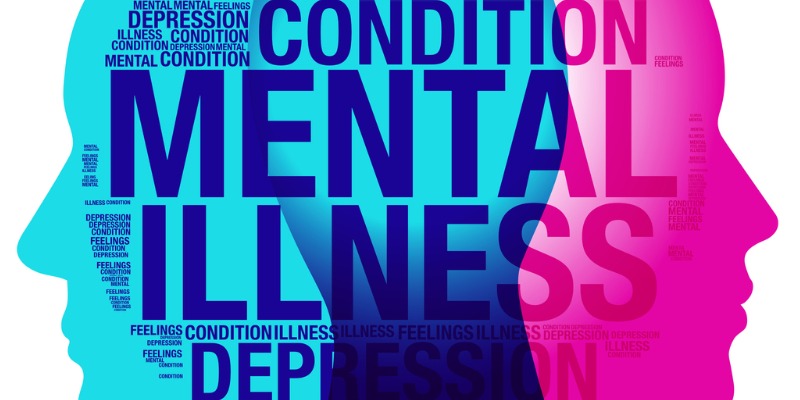How to Identify Mental Health Issues Without Visiting a Doctor?: Our mental health has an influence on many parts of our everyday lives. When a person celebrates his small or big achievements and admits his mistakes, it is a sign of good mental health. However, it is natural and temporary to feel down when faced with challenges. But on the other hand, when a person shows weird signs like excessive mood swings, illogical or harmful thought processes, intense feelings of self-loathing, anger, hatred and helplessness, it is the symptoms of depression which is commonly known as a mental health disorder.

The following signs and symptoms can help you to identify mental health problems:
Feeling anxious or worried
We are all anxious or agitated at times for various reasons. If your worry and stress are creating physical effects like sweating, shortness of breath, dizziness, gastrointestinal issues, headache, restlessness, and diarrhoea then it might indicate that your mental health is deteriorating and you are having mental health problems.
Social Withdrawal
If you’ve lost interest in social activities like withdrawing from family, friends, colleagues, hobbies, and pretty much everything else in your life and nothing gives you joy or happiness. If you’re finding yourself less cheerful and enjoying activities you used to do, it might be a sign that something is wrong with your mental health.
Changes in sleeping habits
A substantial change in your sleep pattern, such as insomnia or oversleeping, is referred to as this. Either you’re having difficulty sleeping or you’re sleeping too much. Sleep disruptions; feeling fatigued while you should be awake at that time. These feelings lead to tiredness, which might exacerbate other depression symptoms.
Change in eating habits or appetite
If you realise that you are overeating or underrating the time, weight fluctuation or rapid weight loss in a short period, it may be one of the warning indications of a mental health problem. Apart from that, feelings of depression or an eating disorder for certain people may be time to seek mental health care.
Behavioural or emotional changes
A mental health illness may begin with changes in a person’s feelings, thoughts, or behaviour. Anger or irritation, frequently feeling upset, particularly over petty primary indications that they have or are developing a mental health condition.
Also Read: How to Check Your Child’s Mental Health at Home?
Dizziness or low energy
People who are experiencing consistently low energy and finding it difficult to motivate themselves to get out of bed. Difficulty in focus, being confused or thinking fast, and not being able to do daily chores like getting to work or cooking a meal is a sign that you are battling a mental health illness and lethargy.
Suicidal thoughts
Suicide thoughts are another major indication that your mental health issue has developed. It must be dealt with immediately. Seeking medical assistance so you can get mental health care. Family members and friends should act on time if a loved one displays indicators of self-harm.
Diagnosis
There are various ways to identify mental health problems including a physical check to clear out anything that might be causing your symptoms. A lab test could include thyroid function or a drug and alcohol screening. A clinical diagnosis is a conversation with a mental health expert regarding your thoughts, feelings, and behavioural patterns.
Treatment
Psychotherapy, family or primary care doctor, medication, social worker, self-help, and other treatments are available depending on the type of mental health problem, you have.
